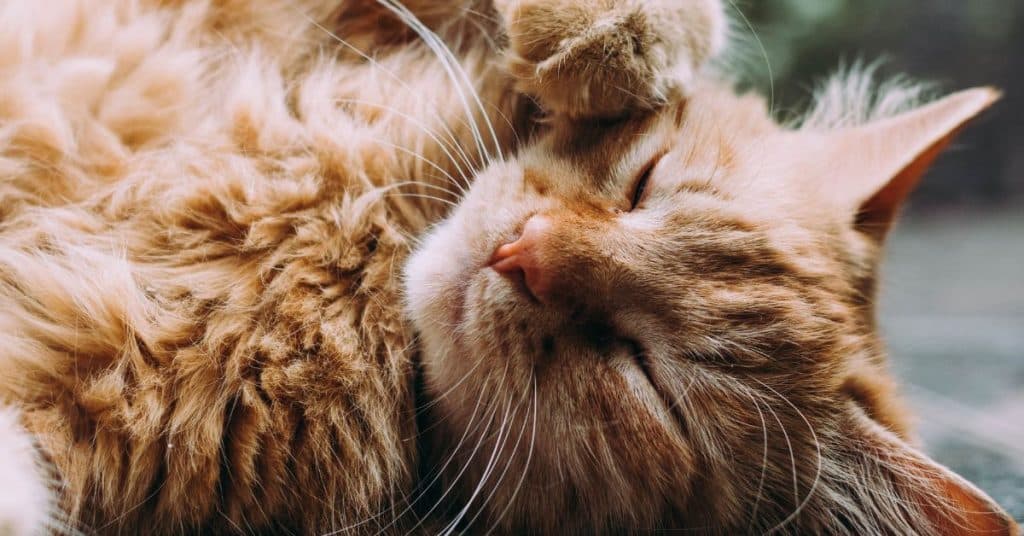An organ as significant as the liver performs many functions, including digesting and converting food, filtering blood, storing nutrients, and eliminating toxic substances for that you must know what cat vitamin do need for my cat with liver problem. A variety of substances can damage the liver because it removes so many substances from the body. The inflammation that results from liver disease is known as hepatitis. Without treatment, healthy liver cells will be replaced by scar tissue, leading to loss of function, diseases in the liver and diseases elsewhere in the body that can affect its performance.
If my cat has liver disease, what vitamin should I give it?
A feline friend needs the right vitamins to stay healthy, so this article discusses the liver’s function, diseases, and causes.
Let’s get started!
The Function of a Cat’s Liver
In the cat’s body, the liver is the largest organ. In the blood, it controls most of the chemicals. A kidney also produces bile to aid digestion and store glycogen for energy. Moreover, the liver regulates amino acid levels.
An example of how evolution has shaped animals to adapt to different diets is the role livers play in their diet. The liver plays a significant role in health, and when it is not functioning correctly, there are consequences.
What causes liver disease?
Various factors can increase the risk of liver disease in cats, including their age, breed, obesity, and medications. Cats with geriatric disease are more likely to suffer from liver dysfunction. The Siamese cat breed, in particular, is more likely to develop liver problems from birth or during life. Additionally, cats with severe obesity are at a greater risk of developing liver disease. Chemically, acetaminophen-containing medications damage cats’ livers.
Is my cat suffering from liver disease?
Symptoms of liver disease can mimic those of other illnesses. Your veterinarian should be contacted if you observe any of the following signs in your cat.
- Loss of appetite or poor appetite
- A sudden loss of weight
- A yellowing of the gums, whites of the eyes, or skin
- Diarrhoea or vomiting
- Behavioural changes or frequency of thirst
- Frequent drooling
- Feelings of fatigue or depression
Nutrition is essential
The care of your cat with liver disease can be confusing if it has been diagnosed. During treatment for hepatic diseases, the liver is rested, and certain functions related to the metabolism of fats, proteins, carbohydrates and drugs are minimised. A cat with the liver disease requires special care regarding its diet.
To control ongoing liver damage and improve liver function, feed your cat carbohydrates that are easily digested, healthy fats, and limited amounts of sodium. Consult your veterinarian to find out what food is best for your cat’s liver health to receive an accurate diagnosis and treatment options.
What should I feed a cat with liver disease?
Treatment for liver disease in cats requires nutritional therapy to aid regeneration. Energy should be provided to cats by high-quality, easily digestible carbohydrates. Inferior carbohydrate types that are undigested are fermented by intestinal bacteria, which then increase colon bacteria, break down dietary proteins and generate ammonia, which can be toxic for cats with liver disease.
For ammonia (a by-product of protein digestion) to be reduced by the diet, proteins must have high biological value. Biologically, most commercial foods contain low-value proteins. During liver repair, the liver needs protein in normal quantities.
The following items will be included in hepatic diets:
- High-digestibility proteins reduce liver workload. It ensures optimal nutrition absorption thanks to highly digestible ingredients that compensate for decreased intestinal enzymatic activity.
- Low copper and increased zinc content minimise copper accumulation in the hepatocytes.
- Portal hypertension is reduced, and extravascular water flow is reduced with a moderate sodium intake.
- Hepatocytes’ health is supported by synergistic antioxidants that neutralise free radicals.
- As a result of high energy content, meals are more minor and intestinal charge is reduced from fat, preventing excessive protein catabolism, a risk factor for hepatic encephalopathy.
- The presence of soluble fibre in the bowel reduces ammonia reabsorption accumulation, and the absence of copper helps prevent liver ammonia accumulation.

Vitamins for Liver Disease
Vitamins are stored primarily in the liver and converted into active vitamins. Several liver diseases can lead to deficiency in fat-soluble vitamins (A, D, E, and k) as well as water-soluble vitamins (C and B complex) because:
- Fat-soluble vitamins are transported by bile, which is impaired in some conditions
- Demand is on the rise
- The capacity of storage has been reduced
During normal chemical reactions, vitamin E reduces “free radicals” that can cause harm to the body. Free radicals can damage DNA and cells. The effects of vitamin E on the liver also include a reduction in fibrosis (scarring), another aspect of liver disease.
It is possible to experience severe blood clotting abnormalities and bleeding problems if you don’t get enough vitamin K. Taking vitamin K supplements is recommended for people with liver disease and before invasive procedures like liver biopsy or placing a feeding tube.
Certain liver diseases can be worsened by a deficiency of several B vitamins (B6, B12, and B1). B12 deficiency is a particular problem for cats. It is recommended that cats suffering from liver disease have their cobalamin levels measured or supplemented routinely.
Ask Your Veterinarian About Liver Disease in Cats
The liver serves many functions, including detoxification, blood clotting, protein synthesis, etc. Consequently, liver disease in cats is a serious condition that may prove fatal. Several factors, including diet, age, genetics, and environmental toxins, contribute to its development.
Cat owners should understand the symptoms of liver disease. To determine whether your cat requires medical attention, you should first determine when it began showing signs of illness—the earlier the diagnosis and treatment, the better the chances of success. You may need to get your cat help if they have been suffering from symptoms for more than a few days.
Conclusion
That’s it! Cat owners should be aware of the signs of liver disease and provide their cats with the necessary treatments to ensure they are healthy. Some owners are often faced with the difficult task of determining if their cat has liver disease.
Several signs may indicate a potential issue. It is imperative to provide cats with the necessary vitamins for liver function to help prevent further complications!
Frequently Asked Questions
What can I give my cat for liver problems?
To combat oxidative stress, cats with liver disease should consume diets high in quality protein, highly digestible carbohydrates, and high-quality fats. Antioxidants should be incorporated into their diets and vitamin E, vitamin C, and selenium.
How can I improve my cat’s liver function?
To control ongoing liver damage and improve liver function, give your cat easy-to-digest carbohydrates, high-quality fats, and a limited amount of sodium. Always consult your veterinarian for accurate diagnosis, treatment options, and advice on the best food for your cat’s liver.
How do you treat a cat’s liver?
Currently, there is no treatment for liver disease in dogs or cats unless specific toxins are identified. A gastrostomy (stomach) tube is generally used for 2-3 months as the primary form of support for cats with hepatic lipidosis.
Can a cat recover from liver failure?
As long as irreparable damage to the liver has not been done, the cat liver has a high regeneration rate. Detection and prevention are the two most effective methods for combating feline hepatic lipidosis.
What causes liver issues in cats?
Cats with liver disease are most likely to have hepatic lipidosis. A fatty liver, caused by excessive accumulation of triglycerides, can cause liver failure. Most obese cats experience a period of poor appetite associated with this disease (a few days to several weeks).
